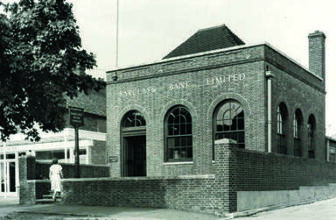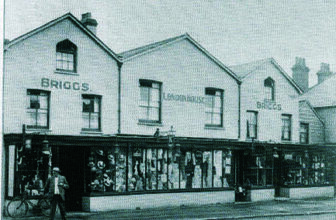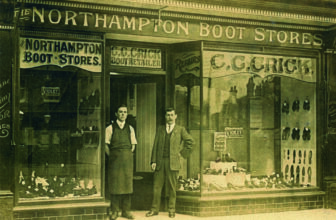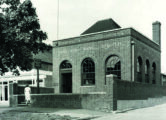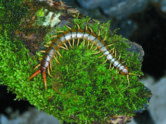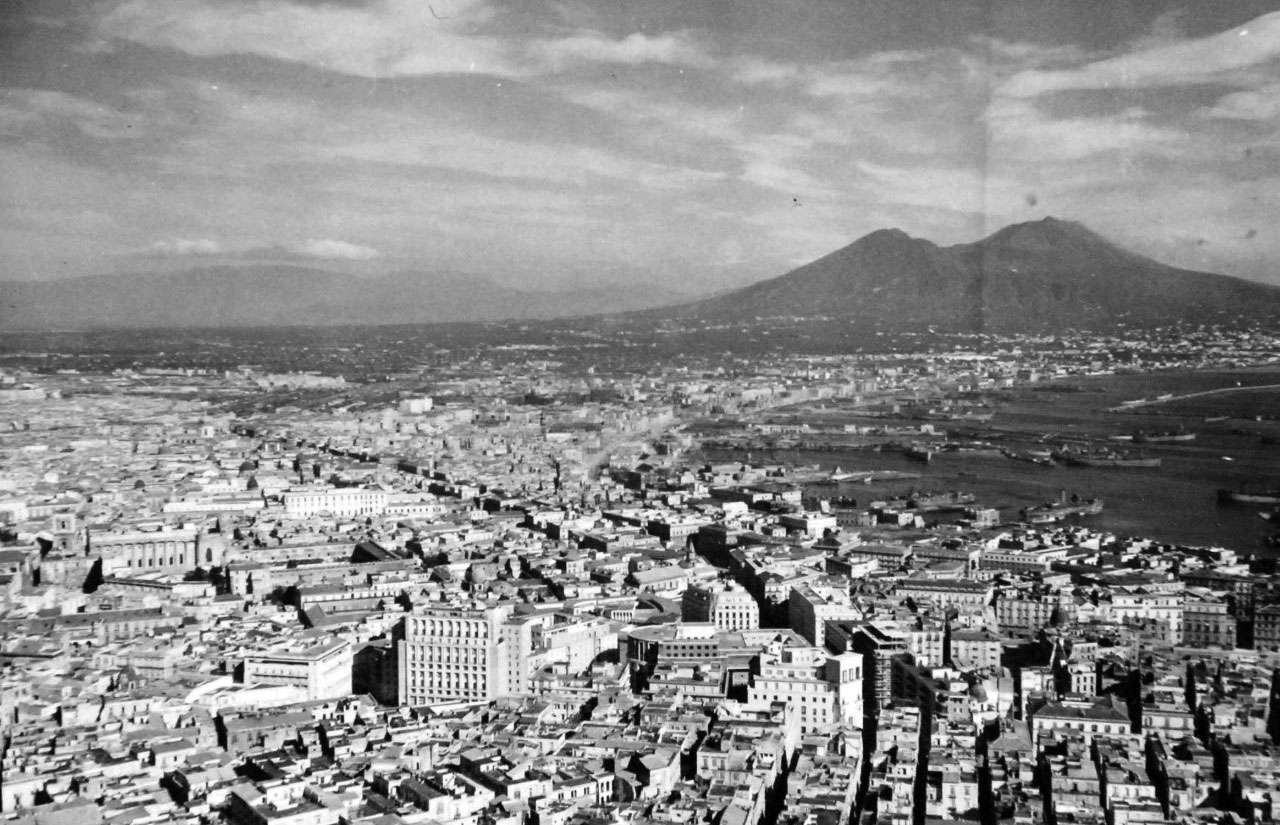
Continued from our September issue ‘Graffiti Hooligans’
Unfortunately the first resistance to German occupation was not well organised: there were groups of men and youths often just 16-17 years of age, armed with guns, acting on their own initiative causing more harm than good. Also they harassed farmers for supplies, menacing them with burning barns and equipment if they did not comply and the whole situation resulted in a real problem.
The Carabinieri, (Police) were not helpful and this lasted for about 2-3 months, until an army Colonel who escaped capture by the Germans and in contact with the Allied Command, solved the problem. He organised proper recruitment of rank and files and openly declaring individuals operating outside his command, outlaws facing court martial. In fact the head of one of these “bands” came to a sticky end by being executed. His mistake was to shoot a German officer, when not authorised, that resulted in the ‘SS’ punitive raid in the village; 6 men killed 23 old and young people (including my friend Ettore) taken to Treviso headquarters, for interrogation and then released in the middle of the night to return home 30 km away. They made it but the feeling towards the “partigiani” was very damaged.
The execution of the culprit somewhat restored confidence in the resistance and this served as an example to other “hot headed men” that they could not roam the country for their own benefit and act on their own and from that time until the end of the war many nasty things happened but not caused by local individuals.
Soon after the armistice, with the Germans firmly in command and by express order of Hitler, Mussolini was liberated in a daring landing by Colonel Skortzeny from high up the Gran Sasso mountain. Subsequently after a welcoming time in Berlin, the Republica Sociale Italiana was declared by Mussolini, with its government based in Salo` a town on the West shore of lake Garda.
In spring 1944, the German Command decided to fortify the hills from the Lake Garda to the Yugoslav border and this meant that the hills just one km north of our village were going to have all sort of fortification built on. The Germans needed a considerable amount of people for the purpose and they tried to recruit from the local population.
This did not succeed in our village, with only a handful accepting to work for what now they saw as the enemy. This hostile attitude provoked the Germans and the puppet Italian Government resorted to conscript local youths who had no alternative than to accept, face a life in concentration camp in Germany or joining the resistance. Most from the age of 14 to 17 worked for the Germans but the older joined the resistance. This with the exception of some young men from three or four fascist families who believed that the Axis could still win the war.
A period of calm followed where people were expecting something to happen and at the beginning of June, the partisans descended on the Germans garrison, shot the commandant and two soldiers, took two more hostage and returned to the hills….triumphantly: later in the day we heard of the Normandy landing. The following day ‘SS’ troops arrived and stationed in the Carabinieri HQ, burned a few houses and sent 20 young and old men to the concentrations camp in Germany. From that day curfew was proclaimed and anyone seen in the street after 9pm would be shot. The local priest, who was a “Monsignor” just below the rank of Bishop, tried to get dispensation for the organist (my father) and the choir, but the answer was a blunt NEIN.
Situation seemed to settled as the villagers could not afford to oppose the Germans for fear of reprisal: the number of men was severely reduced and the those who benefited from this situation, were the three or four fascists still living in the village who entertained the ‘SS’ officers in their home and were able to do whatever they wanted and when they wanted. One example: when the former “maresciallo” of the Carabinieri, now retired, wished to stay out late at night, he always had an armed soldier escorting him home.
My father was a music teacher and organist and had a surprise visit one day when he was practising at the church organ: a German officer, (not of the ‘SS’ but of the Army building the fortifications), stood behind him as he was playing. When he stopped, in correct Italian but strong accent, the officer told him that he too was an organist and asked him if he would mind, when the organ was free, if he could do some practising as he needed to play for the daughter of a colleague getting married soon.
That was a stroke of good luck as the officer was able to obtain for my father a permit to return home after curfew time. The life my father had after 1934 (Mussolini declaration that all teachers should be members of the fascist party) meant that he lost his teaching job at the local college and to work he was cycling all over the villages where there were young people wishing to play the piano or the piano-accordion. Sometime he had to forgo lessons to be able to return home in time and the permit gave him a breathing space in his work. My father never joined a party he despised.
The D-Day events were not known for a few days but when it was apparent that the Allied troops landed in Normandy were successfully forming a firm base in French territory, my mother was able to tell all people she knew about it.
One day a group of us, who had just began the summer holidays, were talking about the war; the Allies in France and also Naples liberated, were hoping that the end of the war was in sight. Unfortunately it did not work out so simply. The SS were no longer in the village, but not very far away and the grip of fear they had on the local population was the dominant concern of the partisans who were instructed by the Allied to disrupt the line of communication between the north of Europe and the south of Italy where the Allies were held by strong German resistance around Monte Cassino.
The situation changed for the worse in August 1944 when the partisans attacked a train transporting tanks to the South derailing it. The following morning, Ettore and I were at the dairy as usual and some one shouted: “The ‘SS’ are coming!”. We had a quick get away to home and told our fathers. Within minutes with our fathers and a neighbour we were on our bikes in the direction of the hills. We arrived at a farm quite high on the hills and we rested. The farmer was very hospitable and gave us some refreshment as we did not even had the full breakfast: bread, salami and a glass of home made apricot juice for Ettore and I and wine for our fathers an the neighbour.
Other people came from a village near our with news that the SS were burning houses and also the College, our College, where we were to return in September. That really upset us and the hurt did not disappear for years. The resentment towards anything German left me only when at University in Geneva, I met German students who like me went through the war years and all the nasty happening connected with it.
We stayed there for a couples of hours and then an officer from the partisans’ “Valdorio” (this name was formed from the 2 towns of Valdobbiadene in the west and Vittorio in the east of the pre-Alps Bellunesi area) brigade, came to tell us to disperse and try to hide in the woods.
He added that the Germans were coming up the hills to set farms alight and he did not want them to find us there as we were likely to be deported to Germany. Ettore, remembering his ordeal of the year before was the first to run ahead of the other four of our group. We found a cosy place about 50 metres down hill, were the trees and bushes hid us quite nicely and we were there for some time. All of a sudden we heard people talking and my father, thinking it was the partisans, climbed a little up to see who it was.
He quickly returned murmuring “German soldiers”. In climbing down, he dislodged a stone that ended rolled against a tall tree making the branches shake. The next we heard was a burst of gunfire and some wood pigeons flying away from where were we were hiding.
The Germans burst out laughing and one said jokingly that according to Ettore’s father who spoke German translated this as “do you want to eat pigeon tonight?” and the others laughed. We then realised just how lucky we were to have escaped being deported if not killed on the spot as partisans.



